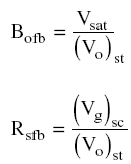Separator Tests Assignment Help
Separator Tests
Separator tests are conducted to determine the changes in the volumetric behavior of the reservoir fluid as the fluid passes through the separator (or separators) and then into the stock tank. The resulting volumetric behavior is influenced to a large extent by the operating conditions, i.e., pressures and temperatures, of the surface separation facilities. The primary objective of conducting separator tests, therefore, is to provide the essential laboratory information necessary for determining the optimum surface separation conditions, which in turn will maximize the stock-tank oil production. In addition, the results of the test, when appropriately combined with the differential liberation test data, provide a means of obtaining the PVT parameters (Bo, Rs, and Bt) required for petroleum engineering calculations. These separator tests are performed only on the original oil at the bubble point. The test involves placing a hydrocarbon sample at its saturation pressure and reservoir temperature in a PVT cell. The volume of the sample is measured as Vsat. The hydrocarbon sample is then displaced and flashed through a laboratory multistage separator system—commonly one to three stages. The pressure and temperature of these stages are set to represent the desired or actual surface separation facilities. The gas liberated from each stage is removed and its specific gravity and volume at standard conditions are measured. The volume of the remaining oil in the last stage (representing the stock-tank condition) is measured and recorded as (Vo)st. These experimental, measured data can then be used to determine the oil formation volume factor and gas solubility at the bubble-point pressure as follows:
The test involves placing a hydrocarbon sample at its saturation pressure and reservoir temperature in a PVT cell. The volume of the sample is measured as Vsat. The hydrocarbon sample is then displaced and flashed through a laboratory multistage separator system—commonly one to three stages. The pressure and temperature of these stages are set to represent the desired or actual surface separation facilities. The gas liberated from each stage is removed and its specific gravity and volume at standard conditions are measured. The volume of the remaining oil in the last stage (representing the stock-tank condition) is measured and recorded as (Vo)st. These experimental, measured data can then be used to determine the oil formation volume factor and gas solubility at the bubble-point pressure as follows:

Where
Bofb = bubble-point oil formation volume factor, as measured by flash liberation, bbl of the bubble-point oil/STB
Rsfb = bubble-point solution gas-oil ratio as measured by flash liberation, scf/STB
(Vg)sc = total volume of gas removed from separators, scf
Separator Tests Assignment Help By Online Tutoring and Guided Sessions from AssignmentHelp.Net
The above laboratory procedure is repeated at a series of different separator pressures and at a fixed temperature. It is usually recommended that four of these tests be used to determine the optimum separator pressure, which is usually considered the separator pressure that results in minimum oil formation volume factor. At the same pressure, the stock tank oil gravity will be a maximum and the total evolved gas, i.e., the separator gas and the stock-tank gas will be at a minimum.
Email Based Assignment Help in Separator Tests
To submit Separator Tests assignment click here.
Following are some of the topics in General Composition Of Petroleum in which we provide help:
- General Composition Of Petroleum
- Physical Properties Of Hydrocarbons
- Origin of Petroleum
- Fundamental properties Of Fluid Permeated Rocks
- Porosity
- Permeability
- The Klinkenberg Effect
- Saturation
- Wettability
- Capillary Pressure
- Relative Permeability
- Drainage Process
- Three phase Relative Permeability
- Rock Compressibility
- Fundamentals Of Reservoir Fluid Behavior
- Classification Of Reservoir And Reservoir Fluids
- Gas Reservoirs
- Fundamentals Of Reservoir Fluid Flow
- Types Of Fluids
- Properties Of natural Gases
- Behavior Of Ideal Gases
- Behavior of Real Gases
- Compressibility Of Natural Gases
- Properties Of Crude Oil Systems
- Gas Solubility
- Determination And Application of Reservoir Fluid Properties
- Composition Of The Reservoir Fluid
- Differential Liberation Test
- Separator Tests
- Fluid Analysis Data On Gas
- Constant-Volume Depletion
- Oil Recovery mechanisms And The material Balance Equation
- Primary Recovery Mechanisms
- The Depletion Drive Mechanism
- Gas Cap Drive
- The Water Drive Mechanism
- Water Production
- The Gravity-Drainage-Drive Mechanism
- The Combination-Drive Mechanism
- The Material Balance Equation
- Change in Pore Volume Due to Initial Water and Rock Expansion
- Gas Reservoirs Help
- The Volumetric Method
- The material Balance Method
Petroleum Engineering | Petroleum Engineering Courses | Rotary Drilling | Gas Reservoirs | Behavior Of Ideal Gases| Online Tutoring


